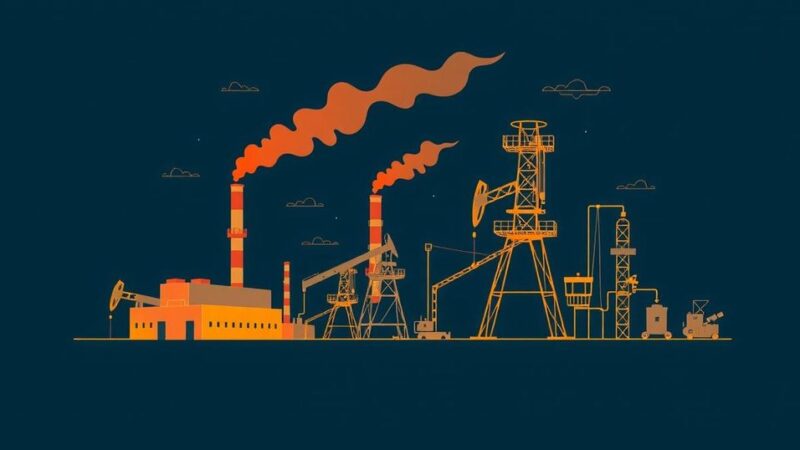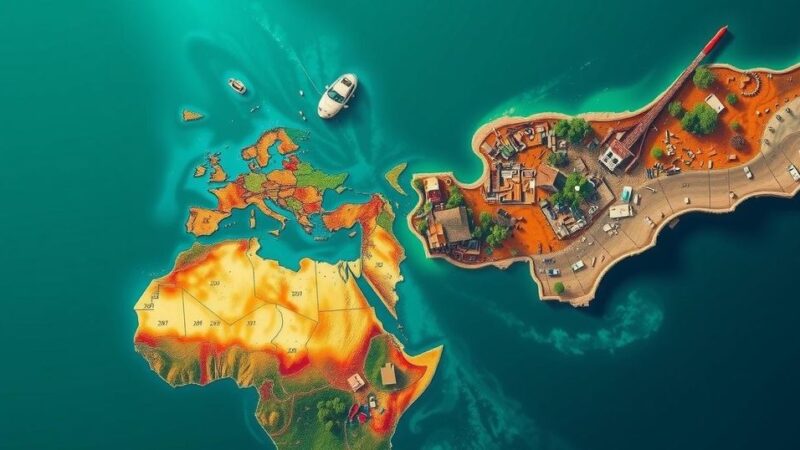The article examines the implications of potential shifts in U.S. climate policy, especially with the expected return of Donald Trump in 2024, and the impact on global climate negotiations. It discusses the historical context of American participation in the Paris Agreement and highlights the detrimental effects on developing nations that bear the brunt of climate change. The narrative emphasizes the urgent need for reliability and commitment in international climate actions moving forward, stressing the importance of decentralization in climate cooperation.
The dynamic landscape of American climate policy has once again shifted dramatically, particularly with Donald Trump’s anticipated return to the presidency in 2024. The prospect of the United States withdrawing from the Paris Agreement once more raises alarms within the global climate community and poses a significant risk of disrupting the fragile international climate consensus. This cyclical pattern of engagement and withdrawal exemplifies not only American political volatility but also raises urgent questions about the impact of such decisions on developing nations, who bear the brunt of climate change despite contributing the least to greenhouse gas emissions.
Initially, in 2016, the United States under President Barack Obama joined the Paris Agreement, symbolizing a commitment to global climate leadership. However, Trump’s withdrawal in 2017, framed by economic arguments, returned the dialogue to a state of uncertainty. President Joe Biden sought to repair this rift by reinstating America’s participation in 2021, yet Trump’s resurgence casts doubt on the long-term commitment of the United States toward international climate efforts.
For countries in the Global South, the inconsistency of American climate policy reveals a disheartening reality: the climate commitments of wealthier nations appear easily reversible, while they face dire consequences from climate change that jeopardize their development and survival. Nations afflicted by climate impacts—such as flooding in Lagos and drought in Kenya—experience firsthand the disasters resulting from policies dictated by domestic political agendas in the United States.
As a potential policy reversal looms, global discussions at COP30 will confront a crisis of trust. Developing nations need reassurances from more affluent countries regarding their climate commitments. However, they possess legitimate reasons to question their reliability, given the history of U.S. withdrawals that framed vital climate agreements as discretionary decisions rather than mandatory responsibilities.
Furthermore, Americans’ economic arguments for withdrawal do not resonate in the Global South, where immediate climate-related challenges overshadow the hypothetical economic disadvantages discussed by U.S. policymakers. With American policy fluctuations, developing nations are compelled to prioritize their climate resilience strategies independently—often turning to emerging powers such as China for support in climate diplomacy.
The anticipated return of Trump could signify a pivotal moment in global climate negotiations. The risk of COP30 devolving into a mere academic exercise, devoid of actionable outcomes, looms large. Cities and non-state actors from around the globe are increasingly forming direct partnerships to grassroots climate action beyond governmental intervention. This shift underscores the growing realization that the west’s climate leadership, previously relied upon, can no longer be taken for granted.
At the heart of this issue lies a deep-seated distrust: the original premise of the Paris Agreement, which emphasized shared responsibility and mutual commitment, has weakened since the United States’ 2017 withdrawal. For many nations in the Global South, this trend reinforces their long-held belief that climate policies in developed countries prioritize economic interests disguised as environmental concerns. As the effects of climate change worsen, the need for genuine collaboration to foster effective global environmental governance has never been more urgent.
The article discusses the cyclical nature of American climate policy and its implications for global climate diplomacy, particularly in the context of developing nations facing severe impacts from climate change. It examines the historical shifts in U.S. engagement with the Paris Agreement, highlighting how political changes in the United States can profoundly affect international climate commitments, especially for countries in the Global South. The background thus provides a context for understanding the critical stakes involved in the upcoming COP30 and the broader significance of political stability for global climate action.
In conclusion, the potential fluctuations in U.S. climate policy pose substantial risks for international climate cooperation, especially for developing nations that rely on commitments from wealthier countries. With the climate crisis threatening their survival, the Global South must adjust their strategies in light of unreliable support from major powers. Therefore, a renewed focus on decentralized cooperation could pave the way for more resilient and committed climate action in an ever-changing global landscape. The lack of trust fostered by erratic U.S. policy underscores the necessity for a unified approach that respects the shared responsibility for addressing climate change.
Original Source: www.ips-journal.eu





